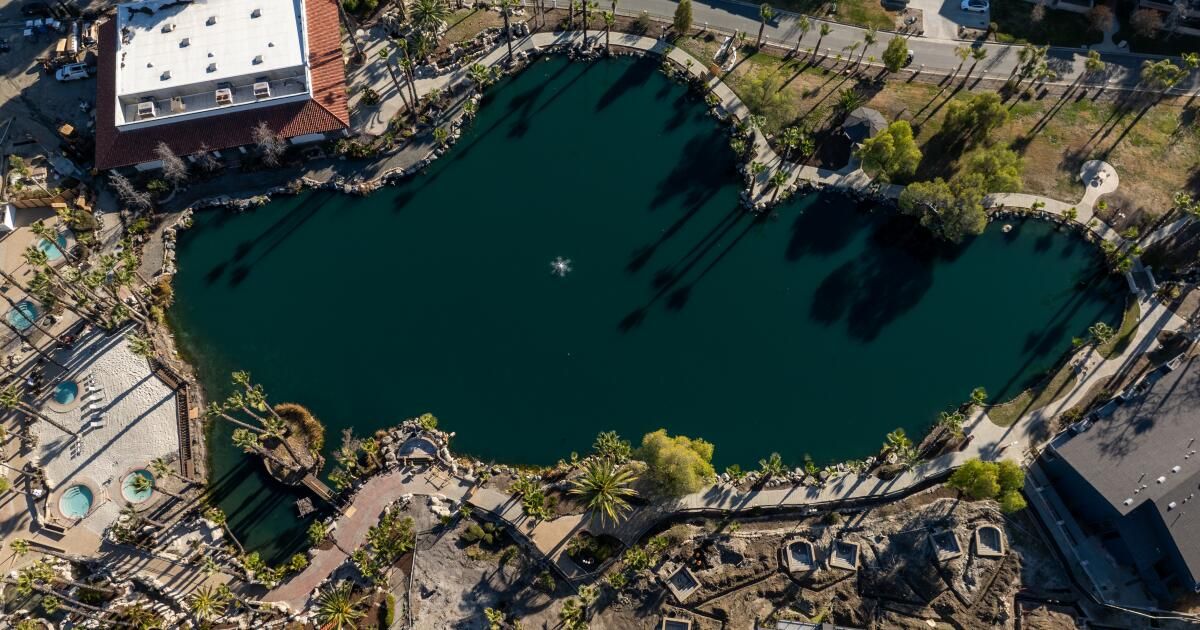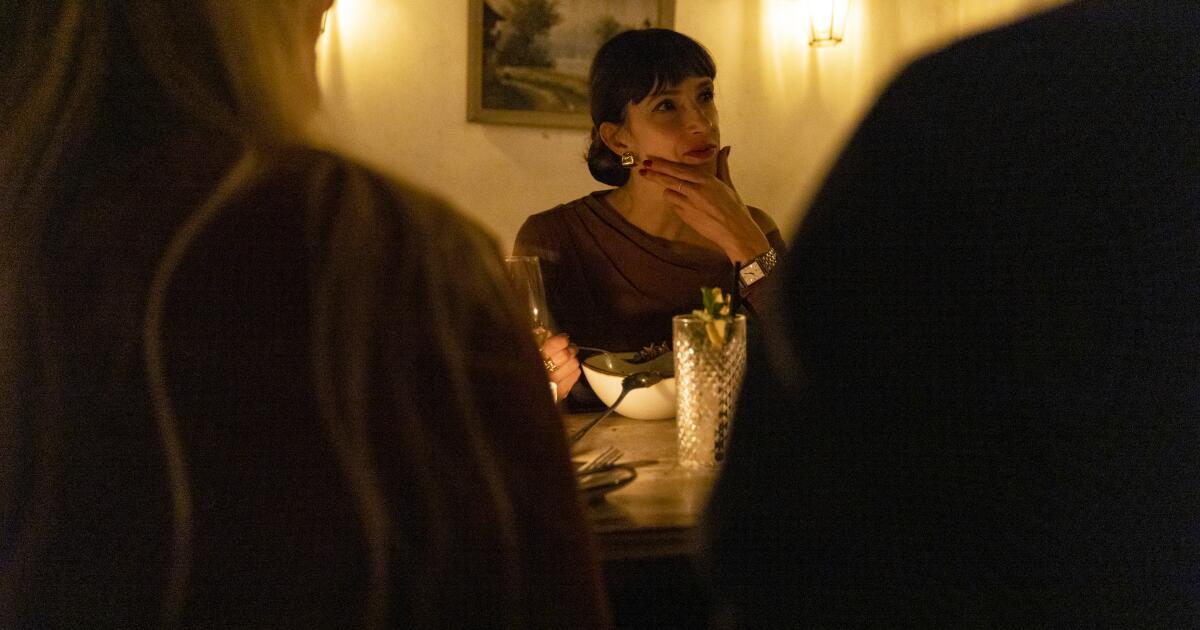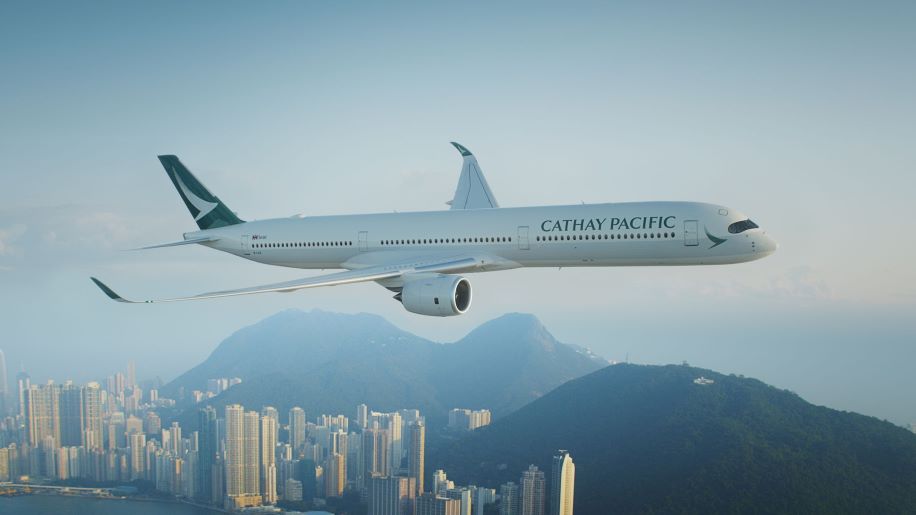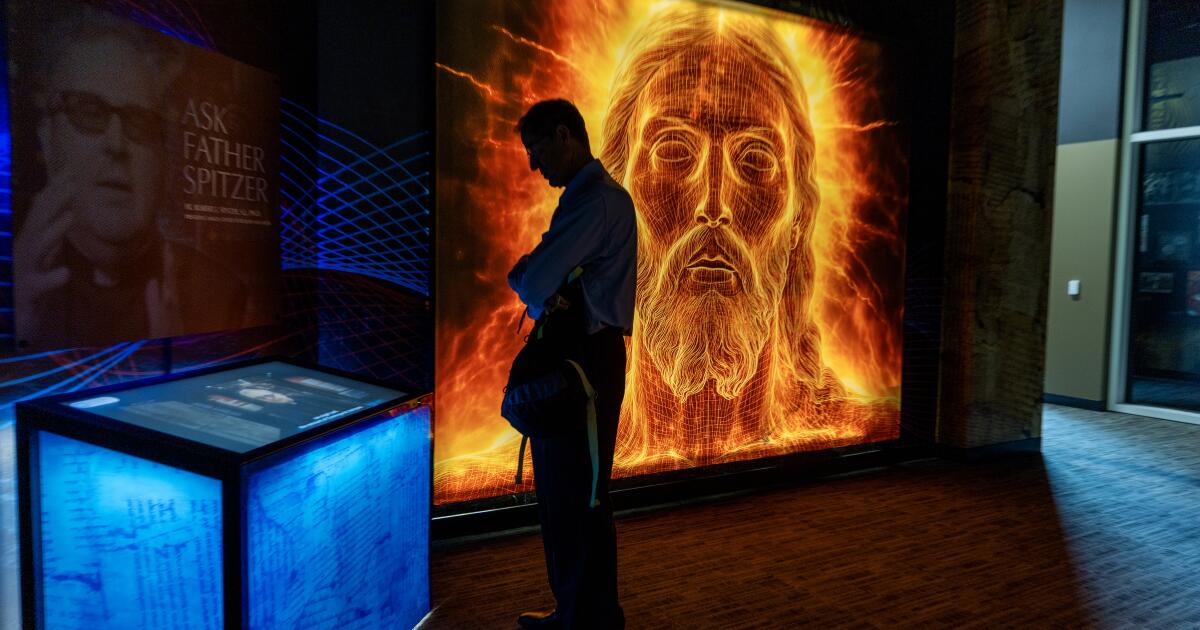Murrieta Hot Springs, a palm-shaded paradise with steaming creeks and coveted mud just north of Temecula, has been home to a Christian Bible college, a TV-free vegetarian commune and a popular mostly Jewish resort. Now comes a new chapter that will open the lands and waters to the public for the first time in almost 30 years.
On February 1, the property will open as a wellness resort and hotel, offering spa services, all types of baths, 174 hotel rooms and several buildings dating back to the early 20th century. Room rates will start at $399, day passes at $89 per adult.
From 1995 until 2022, the property housed the Calvary Chapel Bible College and Conference Center, which was closed to the public and made only limited use of the waters gushing from below. (The bathhouse was converted into a library.)
About two years ago, Texas-based Olympus Real Estate Group shelled out $50 million for the property and then set out to spend another $50 million to refurbish and rethink the campus.
Now, the 46-acre site, which includes several historic buildings, is once again all about water. The resort includes more than 50 pools, tubs, and other water features, including a lake that served as the center of the resort.
Sun-kissed water from a hot tub at Murrieta Hot Springs Resort.
(Myung J. Chun / Los Angeles Times)
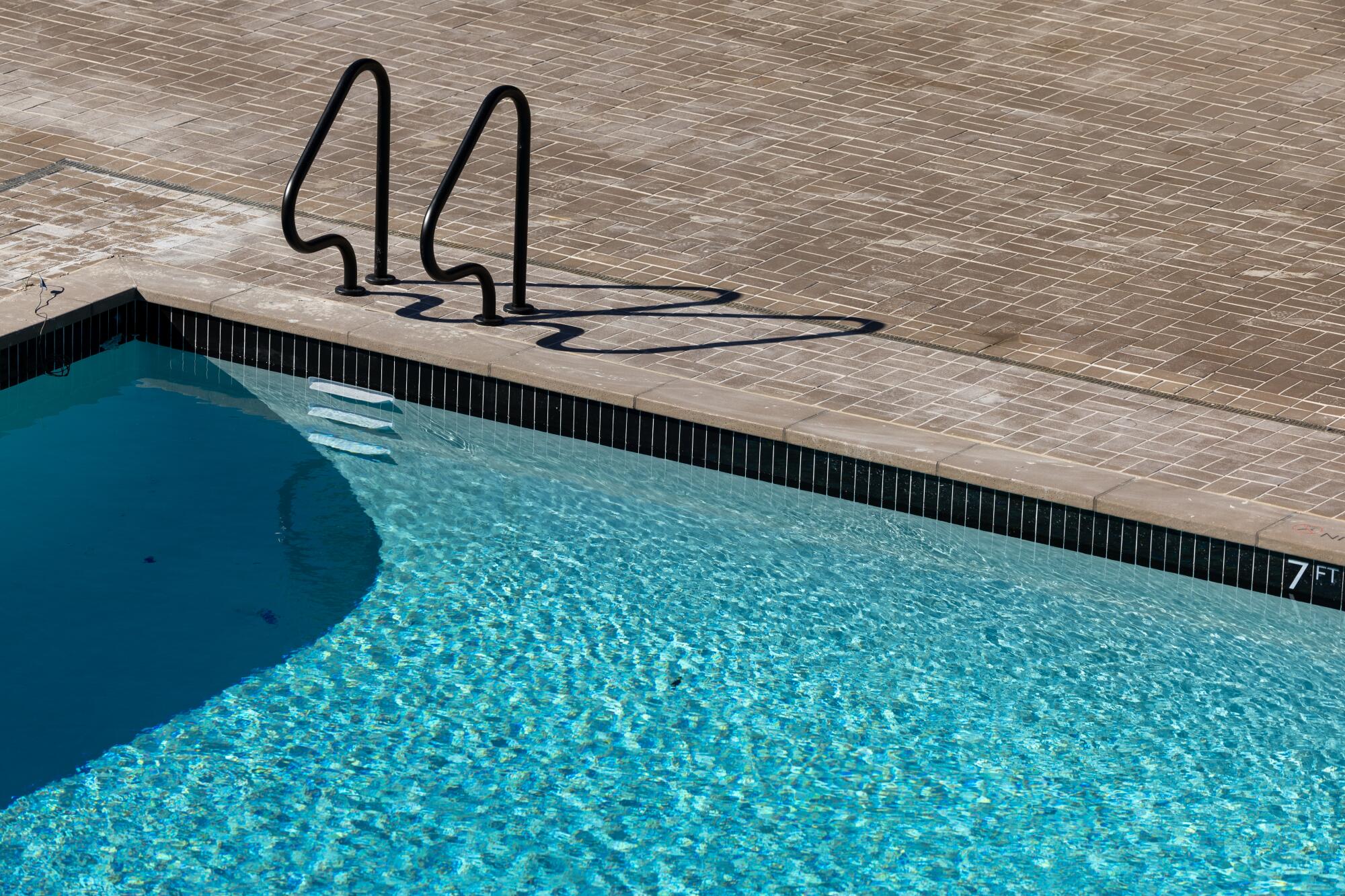
The adults-only Oasis Pool at Murrieta Hot Springs Resort. Other family pools are located on the property.
(Myung J. Chun / Los Angeles Times)
The bathhouse is a bathhouse again. It is adjacent to the resort's stone Spanish Revival lodge, which dates back to 1926, and the Spanish-style Monterrey Building, which was built gradually between 1915 and 1925. Most rooms date from the 1960s and have been renovated in a minimalist style with muted tones.
The property also includes the casual Café Azuli, the Brew 1902 coffee shop, a Dynamic Fitness gym, a gazebo and lounge bars, a mud loft (with clay trucked in from the Mojave Desert), and a sauna with panoramic views. An upscale, one-of-a-kind restaurant, Talia Kitchen, will open in spring. A wine bar, Novel, will open at the end of the year.
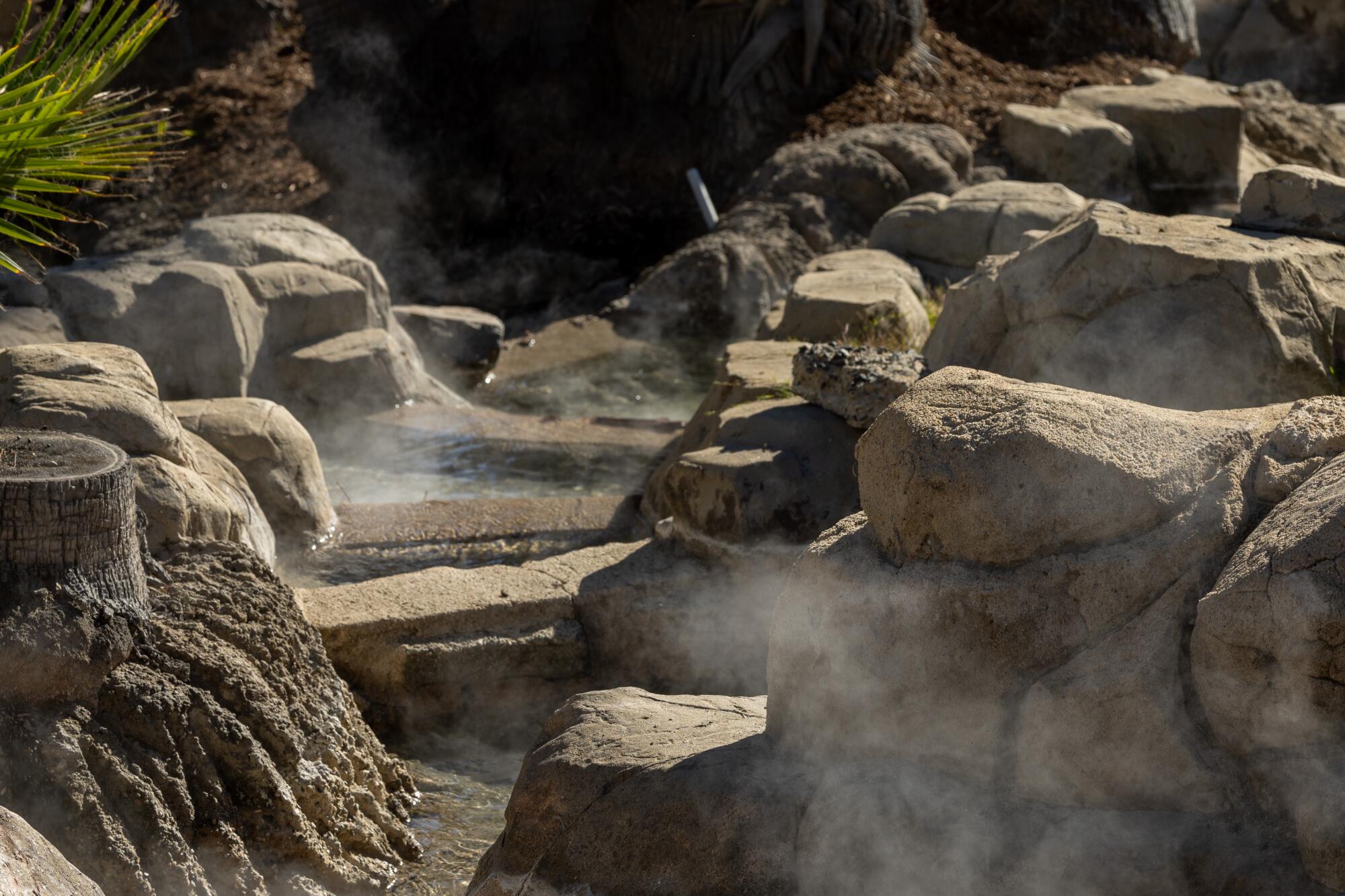
Steam rises from geothermal water flowing through Murrieta Hot Springs Resort.
(Myung J. Chun / Los Angeles Times)
The waters of the complex, which visitors drank in its early years, are said to contain sulfate, chloride, boron, calcium, lithium, potassium, sodium, silica and bicarbonate.
“Our water comes out of the ground at a temperature of between 125 and 130 degrees, depending,” said Dr. Marcus Coplin, the resort's medical director, noting that the water is cooled to 104 degrees or lower before guests bathe. . The property also includes several cold water pools whose water is 54 degrees or lower. According to the resort's promotional materials, the waters “improve circulation, reduce inflammation, improve mood, and support cellular health.”
“Without being clinical,” Coplin said during a pre-inauguration tour, “we want to create an approach to health and wellness based on data and science.”
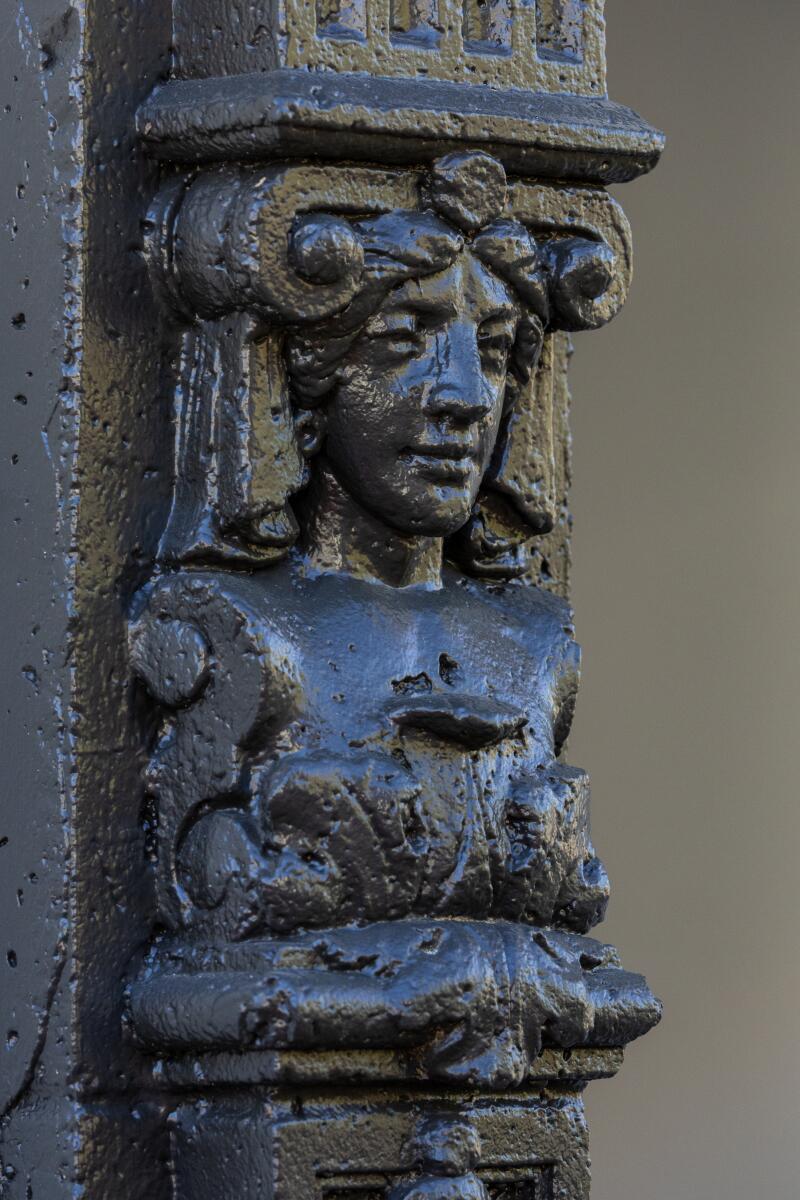
A decorative pillar outside what will become the Murrieta Hot Springs Resort bathhouse. (Myung J. Chun / Los Angeles Times)
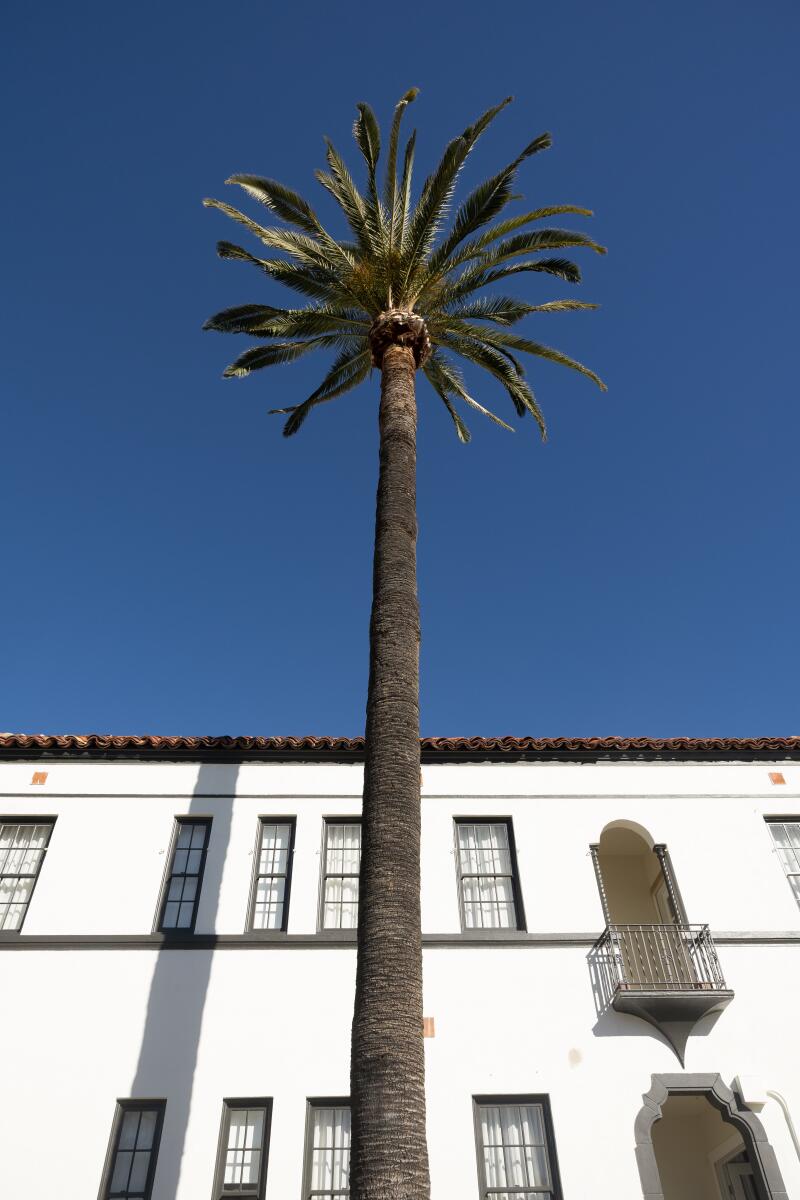
Murrieta Hot Springs Resort is a geothermal spa that dates back more than a century. (Myung J. Chun / Los Angeles Times)
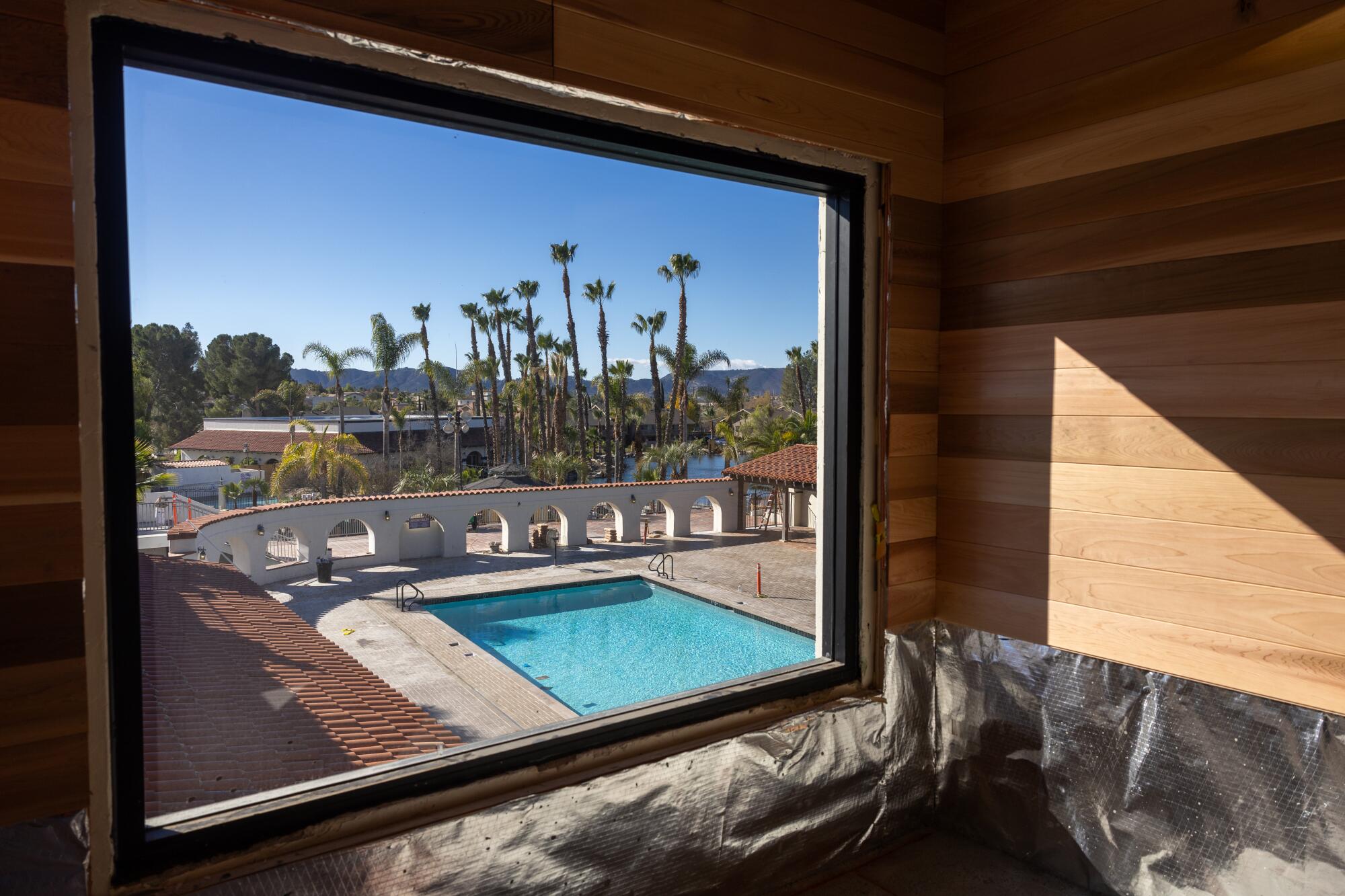
A view of the largest pool at Murietta Hot Springs Resort.
(Myung J. Chun / Los Angeles Times)
The springs first gained popularity as a commercial enterprise in 1902 under the ownership of German immigrant Fritz Guenther. In 1911, the minor league Los Angeles Angels held their spring training at the hot springs.
Over time, they grew a hotel and other amenities, including live music and mini golf. In a video produced by members of Calvary Chapel, members of the Guenther family and other local residents recalled that the complex was especially popular with Jewish families, perhaps because they were familiar with European communal bathing traditions.
The Jewish Museum of the American West has called Murrieta “the Catskills of Southern California,” describing it as a favorite place for Jewish families in the first half of the 20th century, when many of its Spanish Revival buildings were decorated with six-point stars. sides. .
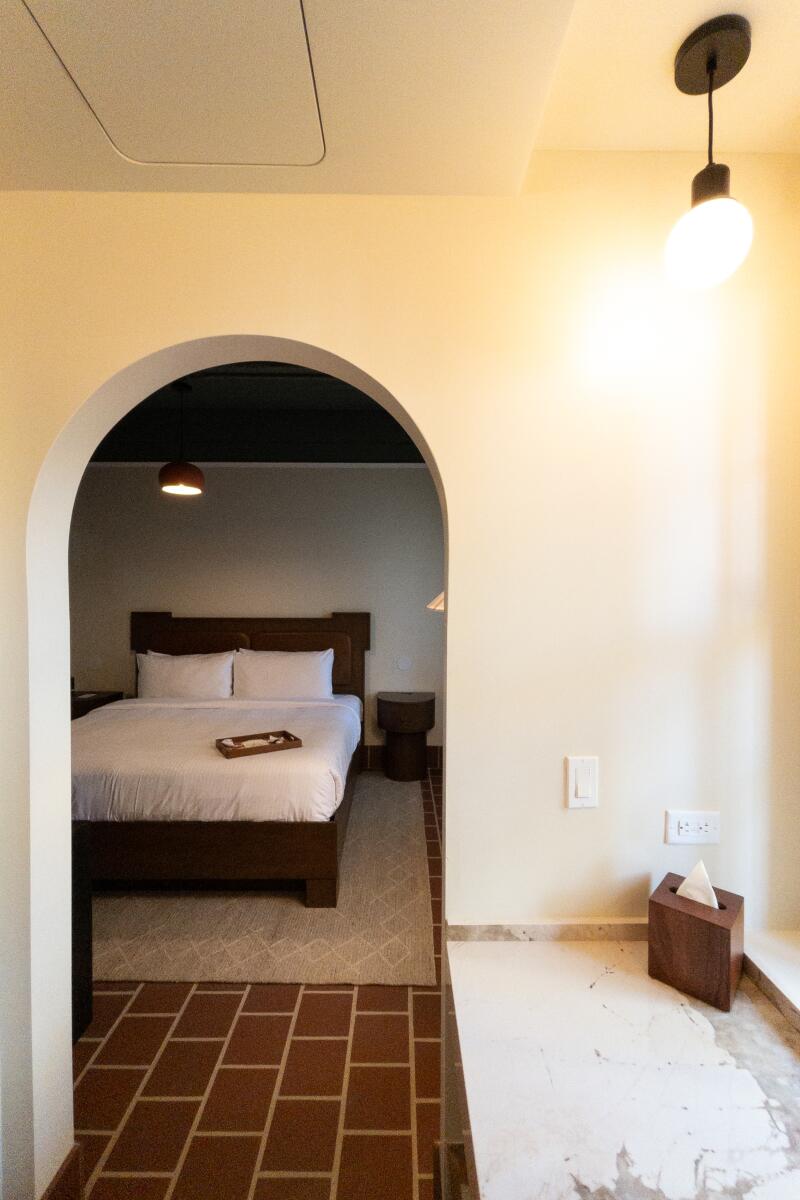
A Hillside Suite at Murrieta Hot Springs Resort that will have a private pool. (Myung J. Chun / Los Angeles Times)
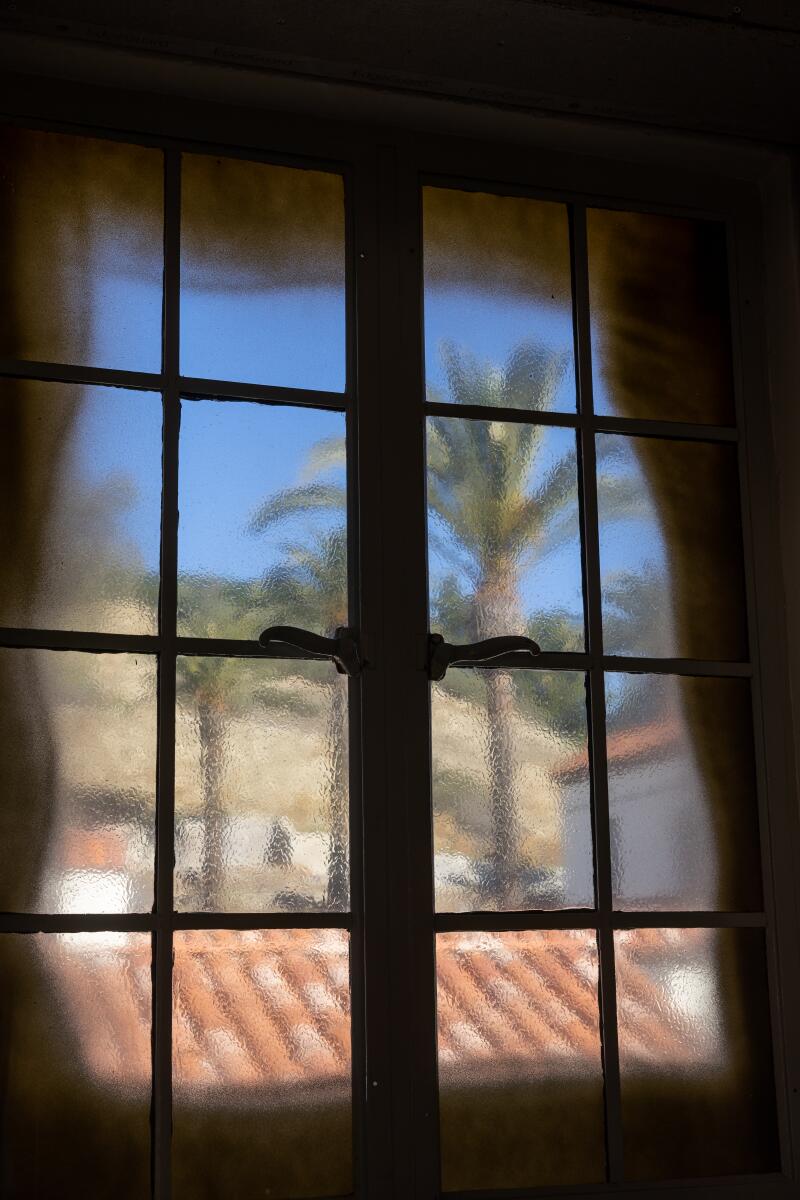
The view through patterned glass from the bathhouse under construction at Murrieta Hot Springs Resort. (Myung J. Chun / Los Angeles Times)
In the late 1960s, the Guenther family sold the complex (then 500 acres) to San Diego attorney Irving Kahn, a transaction that led to an era of widely varying and sometimes controversial uses, including a cancer clinic whose alternative therapies They were publicly discredited.
In the 1980s, a New Age health group called Alive Polarity purchased the resort and operated it for several years as an alcohol, tobacco, television and telephone-free vegetarian community. Later a bar called Shakespeare's Pub emerged.
By the 1990s, when it was purchased by Calvary Chapel of Costa Mesa, the main property had shrunk to less than 50 acres, much of which had fallen into disrepair.
The church renovated the property as a university and conference center for other megachurches, a formula that worked well until enrollment fell and the onset of the pandemic suspended public gatherings. The Bible college has moved to Twin Peaks in the San Bernardino Mountains.
For Olympus Real Estate Group CEO David Dronet, Murrieta is the second step in a strategic campaign that began with the 2018 purchase of The Springs Resort in Pagosa Springs, Colorado, another geothermally active hospitality business that emphasizes wellness. To manage Murrieta, Olympus hired Remington Hospitality, which manages dozens of lodgings and restaurants across the country.
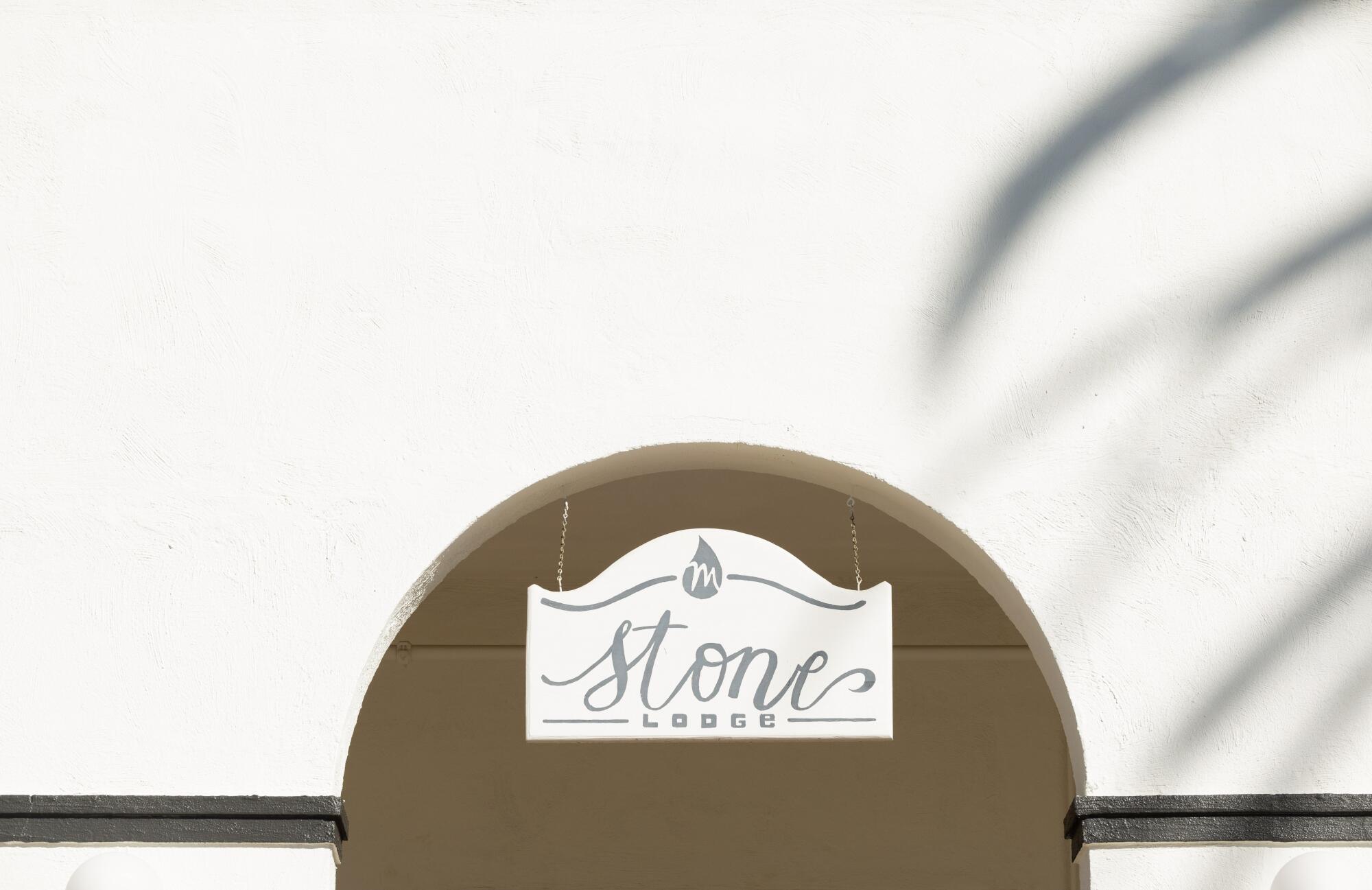
The Stone Lodge Suites at Murrieta Hot Springs Resort.
(Myung J. Chun / Los Angeles Times)
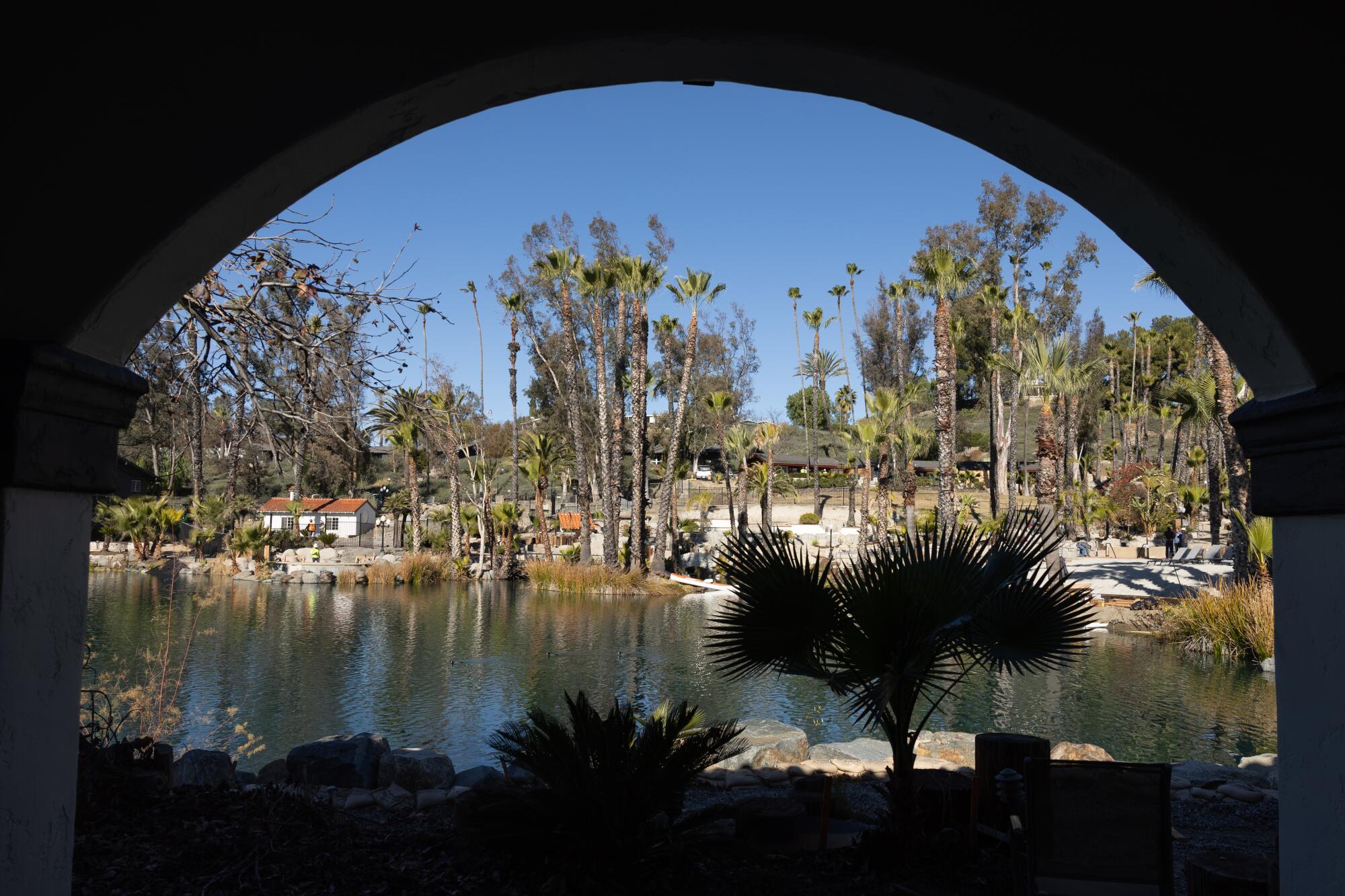
Murrieta Hot Springs Resort is a geothermal spa that dates back more than a century.
(Myung J. Chun / Los Angeles Times)
Whatever promotions the new administration pursues, it will be difficult to match the song about hot springs that artist Mickey Katz used to sing in the 1950s. Rich in Yiddish phrases, written by Grace Eppy and Nat Farber, and rediscovered by Jewish Museum of the American West curator Jonathan Friedmann included these lyrics:
In Murietta Hot Springs / Like cowboys without ferd [horses]/ zey lign [they lie] in the mud baths Mitn kop en dred [with their head in the earth].

